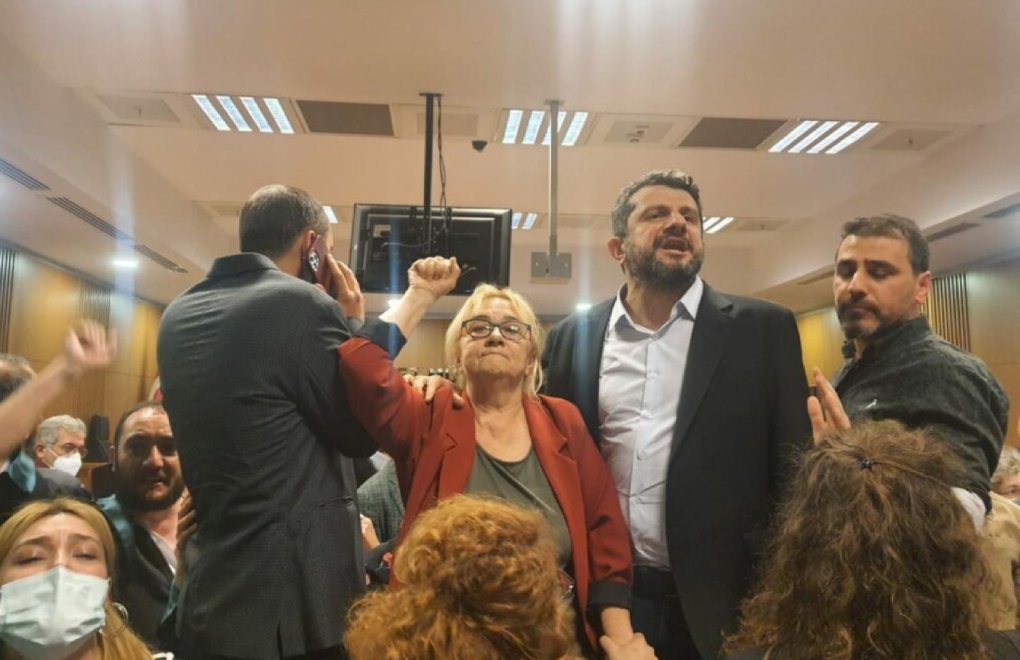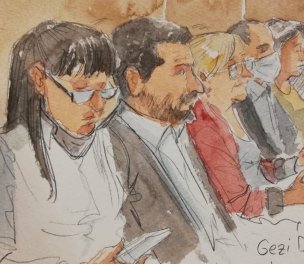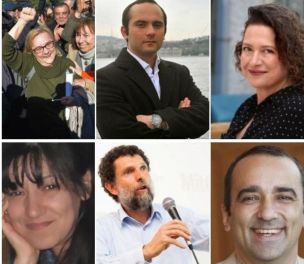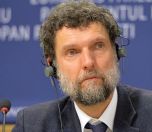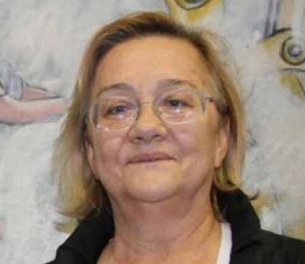Click to read the article in Turkish
An appeal against the arrest of the convicts of the Gezi Park case after the pronouncement of the verdict has been rejected.
Lawyers of the eight convicts had filed an appeal with the İstanbul 14th Heavy Penal Court, which unanimously rejected their requests.
The arrest of the defendants was not against the procedures and the law, the court stated.
Accused of having "organized and financed" the 2013 Gezi Park protests, Osman Kavala was sentenced to aggravated life imprisonment for "attempted overthrow of the government."
Seven other defendants — Mücella Yapıcı, Çiğdem Mater, Mine Özerden, Ali Hakan Altınay, Can Atalay, Tayfun Kahraman and Yiğit Ekmekçi — were sentenced to 18 years in prison for "aiding the attempt" and put in prison.
While Osman Kavala has already been in prison for over four and a half years, the other defendants were also put in prison even though the cout verdict is open for appeal.
The same judge
The presiding judge of the 14th Heavy Penal Court is Akın Gürlek, whose verdicts in political cases have been widely discussed in recent years.
He was the presiding judge of the court that convicted columnists for daily Sözcü for "aiding an illegal organization."
That court sentenced Peoples' Democratic Party (HDP) former Co-Chair Selahattin Demirtaş to 4 years and 8 months in prison and former HDP deputy Sırrı Süreyya Önder to 3 years and 6 months in prison for "propagandizing for a terrorist organization."
It also sentenced Progressive Lawyers' Association (ÇHD) lawyers to 159 years in prison in total.
It sentenced Canan Kaftancıoğlu, the İstanbul chair of the main opposition Republican People's Party (CHP), to 9 years and 8 months in prison because of her social media posts. It declared journalist Can Dündar a "fugitive" and issued an order to confiscate his real estate.
The court headed by Gürlek sentenced former Cumhuriyet reporter Canan Coşkun to 2 years and 3 months in prison for "marking counterterrorism officials as a target."
It sentenced Sebnem Korur-Fincancı, the head of the Turkish Medical Association, to 2 years and 6 months in prison.
Gürlek also gave a decision, defying the verdict of the Constitutional Court in the case concerning journalist Enis Berberoğlu.
After this decision, the Council of Judges and Prosecutors (HSK), the country's judicial overseeing body, promoted Gürlek to the position of "first class judge," violating its own principle that "judges who do not comply with Constitutional Court rulings cannot be promoted."
The HSK hasn't investigated the complaints against Gürlek. On the contrary, it paved the way for Gürlek's appointment to the Court of Cassation, the top appeals court, and the Constitutional Court, as a "first class judge."
CHP Chair Kemal Kılıçdaroğlu has publicly criticized the judge, calling him "the judge of the palace."
About Gezi trialThe Gezi trial began again on May 21, 2021 as the court of appeals overturned the verdicts of acquittal given by the local court. Arrested for over 1,200 days, businessperson and rights defender Osman Kavala and 15 other defendants appeared before the judge at the İstanbul 30th Heavy Penal Court in Çağlayan on charge of "attempting to overthrow the government." Here is a brief overview of the judicial process: Who stood trial?Osman Kavala, Mücella Yapıcı, Can Atalay, Tayfun Kahraman, Ali Hakan Altınay, Yiğit Aksakoğlu, Yiğit Ali Ekmekçi, Çiğdem Mater Utku and Mine Özerden, who were acquitted in the first trial; and Can Dündar, Mehmet Ali Alabora, Ayşe Pınar Alabora, Gökçe Tüylüoğlu, Handan Meltem Arıkan, Hanzade Hikmet Germiyanoğlu and İnanç Ekmekçi, whose files were separated, but have been merged again afterwards. Even though he was acquitted in the Gezi trial, Osman Kavala was continued to be kept behind bars in Silivri Prison at the outskirts of İstanbul. Yiğit Aksakoğlu also served 220 days behind bars in the Gezi trial. Who were the aggrieved parties?In the Gezi trial, where rights defenders were acquitted, the members of the 61st term cabinet, which was established in 2011, were referred to as the complainant aggrieved parties in the indictment. On the list of the aggrieved parties were the then PM Recep Tayyip Erdoğan, the then Deputy Prime Ministers Bülent Arınç, Ali Babacan, Beşir Atalay, Bekir Bozdağ, Emrullah İşler and the then Ministers Binali Yıldırım, Fatma Şahin, Egemen Bağış, Nihat Ergün, Faruk Çelik, Erdoğan Bayraktar, Ahmet Davutoğlu, Taner Yıldız, Suat Kılıç, Mehdi Eker, Hayati Yazıcı, Muammer Güler, Cevdet Yılmaz, Ömer Çelik, Mehmet Şimşek, Nabi Avcı, İsmet Yılmaz, Veysel Eroğlu, Mehmet Müezzinoğlu, Zafer Çağlayan and Sadullah Ergin. After founding the Future Party, Ahmet Davutoğlu announced that he withdrew from the files of criminal cases related to the crimes committed against him personally and were not of public nature, especially from the trials for insult, as an aggrieved party. DEVA Party Chair Ali Babacan also said, "I am not a complainant in the Gezi trial, nor am I an intervening party. Thinking that they were aggrieved, the prosecutor wrote the names of all members of the then government one by one. In our judicial system, there is no such thing as withdrawing from the position of an aggrieved party." What were the defendants charged with?In the first 657-page indictment, Gezi was defined as "an insurrection for coup". The defendants were accused of "organizing and funding the protests." They were charged with "attempting to overthrow the government", "damaging property", "damaging places of worship and cemeteries", "violating the Law on Firearms, Knives and Other Tools", "aggravated plunder" and "violating the Law on Protecting Cultural and Natural Assets." In reversing the acquittals, the court of appeals also demanded that a criminal complaint be filed against the defendants on the grounds that they violated the Law no. 2911 on the Meetings and Demonstrations. According to the indictment, 16 defendants separately faced 606 years to 2,970 years in prison. The first trialIn July 2013, 26 people, including Mücella Yapıcı from the Chamber of Architects and Ali Çerkezoğlu from the İstanbul Medical Chamber, were detained. While they were released following their statements, the rights defenders faced a lawsuit for "founding and leading an organization" in March 2014. All defendants were acquitted in the ensuing trial heard by the İstanbul 33th Penal Court of First Instance on April 29, 2015. Afterwards, it was understood that prosecutor Muammer Akkaş was carrying out an investigation against the people who are currently on trial. Akkaş was also the person who gave the instruction to wiretap the rights defenders' phones. However, he was dismissed as part of an investigation into the December 17-25, 2014 operations and fled Turkey. İstanbul Public Prosecutor Yakup Ali Kahveci took over the file after Akkaş. The investigation, which also consisted of the evidence collected by Akkaş, was completed in 2019; the first hearing was held on June 24. Arrested pending trial, Yiğit Aksakoğlu was released at this hearing. A fews days after the second hearing, the Board of Judges and Prosecutors (HSK) changed the court board hearing the case. Accordingly, Galip Mert Perk was assigned as the Presiding Judge and Talip Ergen as a member of the court board. While the HSK did not change the place of duty of senior member Ahmet Tarık Çiftçioğlu, who had ruled in favor of the "continued arrest" of both Osman Kavala and Yiğit Aksakoğlu, the member of the court board who had expressed a dissenting opinion to the related ruling was assigned to another court. Examining the individual application of Osman Kavala, the European Court of Human Rights (ECtHR) pronounced its ruling of right violation on December 10, 2019 and ruled that Osman Kavala should be released immediately. At the final hearing on February 18, 2020, all defendants, except for the ones who were abroad, were acquitted of the offenses charged. Despite this acquittal and the ECtHR judgement, Osman Kavala was arrested again on another charge. Why they stood trial again?Following the acquittals in the Gezi trial, President and Justice and Development Party (AKP) Chair Recep Tayyip Erdoğan spoke at the group meeting of his party. Targeting Kavala, he said, "The person who stirred up Gezi was behind bars. They tried to acquit him with a maneuver." Shortly after this statement was made, the Board of Judges and Prosecutors (HSK) launched an inquiry against the three judges who were the members of the board of the İstanbul 30th Heavy Penal Court. The prosecutor's office also appealed against the verdicts of acquittal. Public Prosecutor Edip Şahiner demanded that the acquittals be reversed. The 3rd Penal Chamber of the İstanbul Regional Court of Justice, the court of appeals, reversed the rulings of acquittal handed down by the local court, the İstanbul 30th Heavy Penal Court, on January 22, 2021. Referring to the charges brought against the defendants in the indictment, the court justified its reversal by indicating that the pieces of evidence such as the defendants' social media posts, press statements and slogans chanted were not considered in handing down the ruling. The second trialThe final hearing of the second trial took place in two sessions on April 23 and April 25, 2022. Osman Kavala, a businessperson and a rights advocate who has been kept in in prison for four and a half years despite an ECtHR verdict, was sentenced to aggravated life imprisonment for "attempting to overthrow the government" while he was acquitted of "espionage." Mücella Yapıcı, Çiğdem Mater, Hakan Altınay, Mine Özerden, Can Atalay, Tayfun Kahraman and Yiğit Ali Ekmekçi were sentenced to 18 years in prison for assisting this crime. |
(HA/VK)




